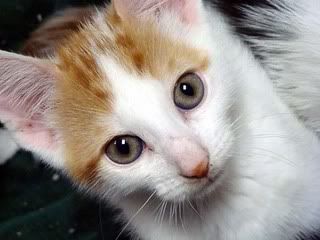
Bringing home a new kitten can be very exciting. All those tiny noses and tiny paws are adorable as you watch your new baby wander around his new home. Kittens are also a bit of extra work and they need special considerations, but with proper care they grow up to be fantastic cats.
There are a few things you should have ready before your kitten comes home. You should have a litterbox and food bowls, toys, dry kitten food, wet cat food, litter, and a scratching post.
Toys and scratching posts are important to making sure your kitten grows up happy and friendly. Starting them with scratching posts young ensures that they’ll have good scratching habits as adults. Scratching is beneficial to the cats because it helps dull their claws and stretch their back muscles. Toys are also great for socializing with your kitten. Just be careful with any toys with strings, as kittens can get tangled and hurt themselves. Only play with these toys if the kitten is supervised. Also remember that kittens can be rough with their claws, because they haven’t learned to be gentle with people yet. You just have to be patient, as they will learn this.
There are many types of dry kitten food, but what we usually recommend is Purina Kitten Chow (in the yellow bag). You want to make sure there is no fish in whatever food you choose for your kitten and that the pieces are small enough for them to eat comfortably. Usually kittens remain on kitten food until six months, when they can switch to the adult formula. Kittens should eat canned food as well. We recommend feeding them wet food twice a day. Remember to look at the ingredients to make sure there is no fish in the food, because even some flavors where it is not the principal ingredient include fish. It is also easier for kittens to eat ground food, rather than chunks. Never give your kitten or adult cat cow’s milk, as it gives them diarrhea.
The type of litter you buy for your kitten depends on your preferences, but it is very important not to buy clumping litter for a kitten. If they lick it off their paws it can clog their intestines. If you want to switch to clumping litter later in life, you should wait until they are at least six months old. Good types of litter for kittens are Yesterday’s News and Feline Pine. These are biodegradable and you can even flush the solids. Make sure to scoop the litterbox daily, as keeping it clean will help encourage your kitten to start good litterbox habits.
When your kitten first comes home you must decide where he’s going to live. Because kittens are small and curious, they’re going to try to climb inside your recliner and explore under your television stand. You don’t want your kitten to get lost or stuck under anything, so the best place for your kitten to grow up is in one room. It can be a bedroom, an office, anywhere he can’t hide too many places. He can come out and enjoy the house while supervised, of course, but when you’re not home he should go back to his room.
Giving your kitten his own room also ensures that he won’t get frightened by all of a sudden having a whole house to run around in. He’ll be able to get used to the way the house smells and sounds before being given the chance to explore. If he isn’t the first pet in the house it also gives the other pets time to get used to the smell of the kitten. Animals should always be introduced slowly and should be supervised at all times.
Kittens adopted from the Meriden Humane Society have already been given their first distemper vaccination, but they will need a second distemper and a rabies vaccination later on. The second distemper vaccination should be given about four weeks after the first and the rabies vaccination should be given at about four months old.
Your kitten should also get neutered, preferably before he turns six months old. Thanks to advances in veterinary technology they can even be altered as early as twelve weeks with very little risk. There are many advantages to neutering your male kitten, including stopping spraying before it starts, lowering their hormone levels so they won’t be as aggressive or territorial, and spaying females will prevent them from ever becoming pregnant or going into heat.
Most of all, have fun with your kitten and try to encourage good behavior from them. Lots of playtime and petting helps them grow into friendly adults that will love you for all the good work you’ve done for them.
